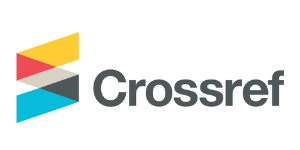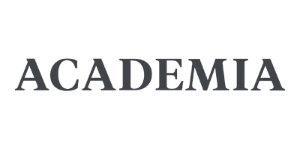Expertise, Trustworthiness, Similarity, Familiarity, Likeability, Product-Match Up of Celebrity Endorsement to Purchase Intention
DOI:
https://doi.org/10.37535/105001220223Keywords:
celebrity endorsement, expertise, trustworthiness, product-match up, purchase intentionAbstract
Celebrity endorsement has become popular marketing strategy for the last decade. However, it is not always effective. Sometimes, it brings adverse effect to the brand and product due to wrong selection of celebrity figure. Therefore, this study aimed to investigate variables that related to celebrity endorsement, but have most significant influence to purchase intention. Among others: expertise, trustworthiness, similarity, familiarity, likeability, and product-match. So, it can be used by marketers as an insight. There were 200 respondents involved in this explanatory quantitative study. The findings revealed that all variables have positive influence to purchase intention. However, it is only expertise, trustworthiness, similarity, familiarity, and likeability that have significant influence. It means, product-match up had insignificant influence to purchase intention.
References
Adnan, A., Jan, A., & Alam, W. (2017). Relationship between Celebrity Endorsements & Consumer Purchase Intention. Abasyn Journal of Social Sciences, 10(2), 356 - 372.
Ahmed, N., Farooq, O., & Iqbal, J. (2014). Credibility of Celebrity Endorsement and Buying Intentions an Evidence from Students of Islamabad, Pakistan. International Letters of Social and Humanistic Sciences, 20, 1 - 13.
Babbie, E. (2010). The Practice of Social Research. Belmont, CA: Wadsworth.
Bagozzi, R., & Burnkart, R. (1979). Attitude Measurement and Behavior Change: a Reconsideration of Attitude Organization and Its Relationship to Behavior. In NA - Advances in Consumer Research (pp. 295 - 302). Association for Consumer Research.
Bhatt, N., Jayswal, R., & Patel, J. (2013). Impact of Celebrity Endorser's Source Credibility on Attitude Towards Advertisements and Brands. South Asian Journal of Management, 20(4), 74-95.
Bradley, N. (1996). Marketing research tools and techniques. Oxford: University Press.
Chan, K., Ng, Y., & Luk, E. (2013). Impact of celebrity endorsement in advertising on brand image among Chinese adolescents. HKBU Department of Communication Studies Journa, 14(2), 167 - 179.
Dariswan, P., & Indriani, M. (2014). Consumers' Attitude Toward Shopping Through Instagram Social Media. Singapore: Asia-Pacific Business Research Conference.
Dodds, W., Monroe, K., & Grewal, D. (1991). Effects of Price, Brand, and Store Information on Buyers' Product Evaluations. Journal of Marketing Research, 28(3), 307 - 319.
Farhat, R., & Khan, B. (2011). An Exploratory Study of Celebrity Endorsements . International Conference on Economics and Finance Research, 4, 463 - 466.
Felix, R., & Borges, A. (2014). Celebrity Endorser Attractiveness, Visual Attention, and Implications for Ad Attitudes and Brand Evaluations: A Replication and Extension. Los Angles: Latin American Advances in Consumer Research.
Ha, N., & Lam, N. (2017). The Effects of Celebrity Endorsement on Customer’s Attitude toward Brand and Purchase Intention. International Journal of Economics and Finance, 9(1), 64 - 77.
Jaffari, S., & Hunjra, A. (2017). Mediating Impact of Celebrity Endorsement in Relationship of Celebrity Characteristics and Consumers Purchase Intention. Abasyn Journal of Social Sciences, 10(2), 329 - 344.
Karasiewicz, G., & Kowalczuk, M. (2014). Effect of Celebrity Endorsement in Advertising Activities by Product Type. International Journal of Management and Economics, 44, 71 - 91.
Kim, E., & Kim, Y. (2004). Predicting online purchase intentions for clothing products. European Journal of Marketing, 38(7), 883 - 897.
Kutthakaphan, R., & Wahloonluck, S. (2013). The Use of Celebrity Endorsement with the Help of Electronic Communication Channel (Instagram). Sweden: Malardalen University.
Levi, E., Varnali, K., & Tosun, N. (2017). The Match-Up Hypothesis Revisited: A Social Psychological Perspective. International Journal of Communication, 11, 278 - 300.
Liang, T., & Lai, H. (2000). Electronic store design and consumer choice: an empirical study. 33rd Hawaii International Confrence on System Science. Honululu.
Neuman, W. (2014). Social Research Methods: Qualitative and Quantitative Approaches. Harlow: Pearson Education.
Shimp, T. (2010). Advertising, Promotion and Supplemental Aspects of Integrated Marketing Communication (4th ed.). Texas: The Dryden Press.
Simmers, C., Damron-Martinez, D., & Haytko, D. (2009). Examining the Effectiveness of Athlete Celebrity Endorser Characteristics and Product Brand Type: The Endorser Sexpertise Continuum. Journal of Sport Administration & Supervision, 1(1), 52-64.
Taylor, S. (2015, August 21). Why Women Like Shopping More Than Men. Retrieved January 11, 2016, from The Huffington Post: http://www.huffingtonpost.co.uk/steve-taylor-phd/why-women-like-shopping-more-than-men_b_8014480.html
Wei, P., & Lu, H. (2013). An examination of the celebrity endorsements and online customer reviews influence female consumers’ shopping behavior. Computers in Human Behaviour, 29, 193-201.
















